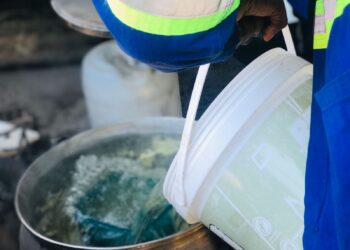By Zanele Makola
The heavily criticised Value Added Tax (VAT) hike for South Africa on 1 May 2025 will be implemented after being supported by the majority of parties in the National Assembly. Enoch Godongwana, the South African Minister of Finance, indicated that VAT will increase from 15% to 15.5%, with another hike to 16% predicted in April 2026. These increases are motivated by the government’s need to raise money.
A VAT hike will directly result in higher pricing for basic goods and services such as food, transport, and household essentials, affecting all consumers but disproportionately impacting Thandiswa Mbhele, a 20-year-old second-year student at Tshwane University of Technology.
Thandiswa is originally from Ulundi, KwaZulu-Natal, but now resides in Gauteng to pursue a career in Human Resources. “Growing up I aspired to become a nurse in order to assist my community as most people had to travel far to visit a clinic, which was not easily accessible,” said Thandiswa as she reminisces. She also wants to have a successful career so that she can gain financial freedom.
She receives a monthly living allowance of R1,650 from the National Student Financial Aid Scheme (NSFAS) and spends R850 on groceries, leaving her with just enough money for toiletries, money to send home to her aunt who is not working, and other necessities. With the VAT hike, her living allowance will be insufficient to cover her monthly expenses, which may have a detrimental impact on her because she has no financial support from family members.
She added that this situation may compel her to seek alternative sources of income, such as starting a small business, in order to make ends meet. Although it is a good concept, it will be difficult to carry out because it may negatively impact her schoolwork, which is already rigorous, and there is no extra time to add any additional activities. “I give my all to my schoolwork because I want to succeed and achieve the goals that I have set for myself. I honestly hope that I will be able to survive financially after the VAT increase,” she explained.
A caretaker at one of TUT’s student residences, Caril Morokolo, clarified that he works with students from different financial backgrounds and it is challenging to help them all. “Students come to me with all sorts of problems, but it is mostly financial issues, and with the VAT increase, they are going to face more problems,” he added.
Thandiswa hopes to be able to tackle this issue so that she can pave the way for the young ones in her family who look up to her. She also remarked that it is unfortunate that some students do not have a start-up and have to start from scratch, and the VAT issue is not making things any easier.
















